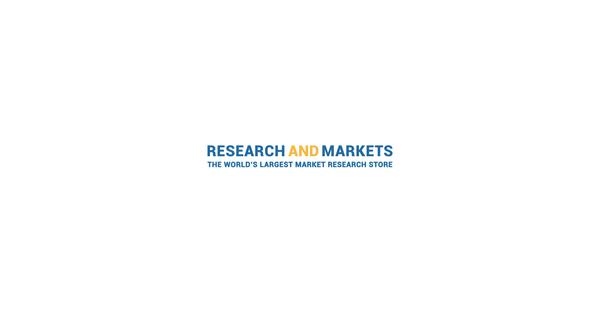DUBLIN--(BUSINESS WIRE)--The "Global Face Mask Detection Market By Component, By Application, By Technology, By Regional Outlook, Industry Analysis Report and Forecast, 2021-2027" report has been added to ResearchAndMarkets.com's offering.
The Global Face Mask Detection Market size is expected to reach $4.2 billion by 2027, rising at a market growth of 11.2% CAGR during the forecast period.
Face Mask Detection is a technique for matching a human face from a digital image or a video frame against a database of faces. It is commonly used to verify users through ID verification services, and it works by locating and measuring facial features from a given image. Facial recognition systems, which began as a type of computer application, have seen increased use in recent years on smartphones and in other forms of technology, such as robotics. Computerized facial recognition systems are classified as biometrics since they involve the measurement of a human's physiological properties.
COVID-19 Impact Analysis
The COVID-19 pandemic has increased the awareness of healthcare and public safety norms aimed at halting (or at least slowing) the coronavirus's spread. Various preventative safety measures were implemented around the world, ranging from sanitization of public spaces/areas to severe individual home quarantine. Wearing a face mask has been shown to be one of the most effective ways to prevent the spread of the SARS-CoV-2 coronavirus in most cases.
This caused local governments and authorities in several countries to enact strict face mask-wearing norms and regulations, propelling the face mask detection system market forward. Many business sectors experienced a downturn as a result of the COVID-19 pandemic, pushing brick-and-mortar retailers around the world to adapt their business models.
Market Growth Factors:
High implementation of face mask detection in containment zones
The COVID-19 pandemic is expected to take some time to stabilize, which makes it important to have face mask detection systems. Several scientists and researchers stated that coronavirus will never be completely eradicated from the planet and will instead resurface as pandemic in various regions. To limit the spread of the coronavirus and prevent it from becoming a full-fledged pandemic, rigorous preventions have been taken by the governments, companies and individuals. In the future, this could open up new opportunities for the face mask detection systems business.

Rising adoption of face mask detection system within transportation industry
Face mask detection devices have become more common in settings where COVID-19 infections are more likely, such as train stations and airports. The face mask detection system may be linked with current airport security cameras to detect travellers who do not have appropriate face masks. If a person is discovered to be missing a face mask, their photo is sent to airport officials, who will take appropriate action. If the person's facial profile is already in the system, such as the face of an airport employee, an alert can be sent to the employee's phone telling them to put on their face mask right away.
Marketing Restraining Factor:
Dearth of awareness and knowledge
Facial recognition is a cutting-edge technology with several applications in various fields. The technical hurdles that the facial imaging technique faces require rapid attention in order to make it robust for out-of-lab applications. According to the Neurodata Lab, a shortage of useful data to train algorithms is expected to have a detrimental impact on industry growth. Traditional business practices are transformed and redefined using emotion AI technology to improve an organization's productivity and profit margins.
Market Segments Covered in the Report:
By Component
By Application
By Technology
By Geography
Key Market Players
For more information about this report visit https://www.researchandmarkets.com/r/n9v4ww




